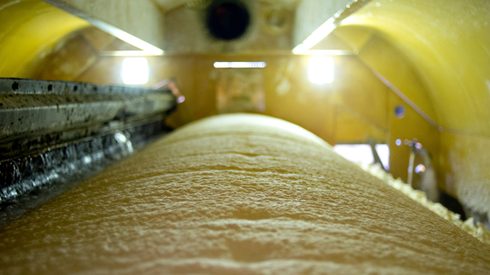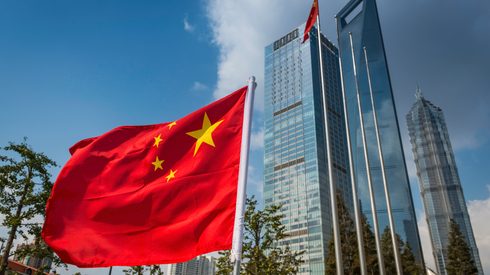Import pulp business has come to a standstill in China, where customers have been reluctant to engage in talks and most suppliers have been firm on their products’ prices.
Chinese clients noted sliding prices for resale pulp grades across the board in the domestic market and the ongoing slump in pulp futures on the Shanghai Futures Exchange (SHFE), saying both reflected weakening demand in the country.
Buyers also pointed out that although pulp imports were already unsustainably more expensive than finished products, sellers continued to seek higher prices for June orders, proposing an increase of $20 per tonne for radiata pine, which would bring the grade’s list price to $840 per tonne if implemented.
A rise of $30 per tonne was suggested for South American bleached hardwood kraft (BHK) pulp; suppliers aimed to inflate its list prices to $770-780 per tonne.
Offer prices for northern bleached softwood kraft (NBSK) pulp were flat at $820-880 per tonne.
Interested in the global pulp market? Stay ahead of the curve and track the latest pulp price movements with access to our comprehensive daily pulp price data, covering North American, European, Asian, and Latin American markets. Learn more.
Fastmarkets assessed the price for resale NBSK at RMB 6,367 per tonne this week, down by RMB 116 per tonne from a fortnight earlier. That level was equivalent to $758 per tonne, excluding 13% value-added tax (VAT) and RMB 150 per tonne in logistic costs for resale pulp.
Resale South American BHK plummeted by RMB 140 per tonne to RMB 5,630 per tonne, equivalent to $668 per tonne minus VAT and logistic costs.
The most-traded September bleached softwood kraft (BSK) contract settled at RMB 5,930 per tonne on Thursday June 20 on the Shanghai bourse. The level was equivalent to $708 per tonne, excluding VAT and RMB 120 per tonne in logistic costs.
A major South American producer indicated that the market was static, with big-volume buyers sitting on the sidelines and smaller customers halting purchases of imported pulp altogether.
Another South American supplier managed to set up meetings with regular buyers, proposing to maintain prices at current levels and pressing customers to buy June and July volumes together, according to a client who participated in one of the talks.
The client added that buyers declined to place orders even after sellers canceled the planned price hikes.
Suppliers acknowledged that customers were quiet and did not offer prices they desired, a telltale sign that sellers were not keen on entering into business talks.
Sellers have apparently quietly withdrawn their planned price rises; some sellers have embraced the possibility that June business discussions may not be concluded at the end of this month and end up being dragged out to the next month, with negotiations over combined tonnages for June and July.
We still have a few months of backlog and can wait out the summer lull …
“We still have a few months of backlog and can wait out the summer lull,” a supplier said.
The supplier noted that ocean freight rates for shipping goods from China to North America and Europe have spiked, forcing Chinese producers to halt exports of fine paper, ivory board and tissue products to those two regions.
“That will give North American and European mills time to ramp up production of those virgin fiber grades and market shares at home while bolstering pulp prices,” the supplier said.
Net prices for BSK and BHK in the two regions are $100 per tonne higher than those in China, which is the main reason that suppliers have not cut pulp prices in the Chinese market.
BSK levels flat
Over the two weeks to Thursday June 20, prices for both Canadian and Nordic NBSK were steady at $810-840 per tonne, with the midpoint for the grade flatlining at $825 per tonne.
Radiata pine prices were flat at $790-810 per tonne.
But the premium for resale NBSK and radiata pine, whose prices are pegged to the futures market, increased from RMB 150-200 per tonne to RMB 350-400 per tonne.
Traders said that with import volumes of the two grades subsiding, the availability of resale tonnages dwindled.
Meanwhile, mills continued to snatch up resale Russian BSK to keep production costs down. Previously, the grade, which is also tied to the futures market, had been sold at a discount of RMB 200 per tonne, and the discount has been reduced to none.
The rapid sale of Russian BSK is likely to change the dynamism of the futures trade. Most of the half a million tonnes of pulp inventories sitting in SHFE’s designated warehouses belong to Russian BSK.
In addition, a delegate from the Ilim Group indicated that the company planned to switch part of its production from BSK to a grade made from a mix of BSK and BHK and pure BHK at its mills in Siberia in the next three months, curtailing its BSK supply to China.
BHK intact
With producers no longer pushing for hikes, prices for South American BHK were flat at $740-750 per tonne.
A source from Arauco indicated that the company planned to take maintenance downtime at its Horcones mill in Chile, known as the MAPA project, for half a month, which will cause its BHK allotments to China to be reduced by 50%.
Chinese customers believed that the BHK segment was under downward price pressure from the upcoming startup of Suzano’s 2.5 million tonne per year Cerrado project in Brazil and Liansheng Pulp & Paper’s 1.2 million tpy line in China.
The two firms are committed to bringing their BHK online at the end of this month.
This article was taken from PPI Asia, Fastmarkets’ paper, packaging and fiber market news and prices for Asia. To understand what’s ahead for Asian paper and packaging prices and stay informed about market fluctuations, sample our PPI Pulp & Paper Week newsletter. To learn more about our price data, forecasts and commodity market insights, speak to our team today.






